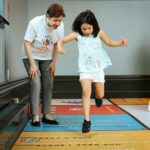from Brookings
by Helen Shwe Hadani & Jennifer S. Vey
The COVID-19 pandemic has affected almost every aspect of daily life, but presents an added burden on children and families. Closures of schools and child care facilities have had dramatic impacts on the lives of children and put a strain on caregivers to meet children’s developmental needs at home. This in combination with economic instability and social isolation is a recipe for toxic stress, which can have long-term negative effects on brain development and health.[1] These cascading effects of the pandemic are widespread, but are disproportionately affecting families living in communities challenged by decades of discrimination and disinvestment—and are very likely to widen already existing educational equity gaps in worrisome ways.[2 ]









